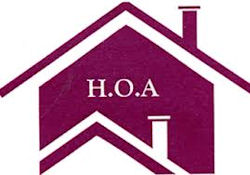|
|
What exactly
 is a Home Owner’s Association (HOA) and what do they do? When you purchase a condominium, townhouse or other type of property in a planned development such as a gated community, or sometimes even an ordinary subdivision, you may be obligated to join that community's homeowners' association (HOA) and pay monthly or annual HOA fees for the upkeep of common areas and the building. is a Home Owner’s Association (HOA) and what do they do? When you purchase a condominium, townhouse or other type of property in a planned development such as a gated community, or sometimes even an ordinary subdivision, you may be obligated to join that community's homeowners' association (HOA) and pay monthly or annual HOA fees for the upkeep of common areas and the building.
When you are considering purchasing one of these types of properties, you should be aware of the property’s HOA rules and fees and take these into consideration before signing on the dotted line. Home Owner’s Association’s may have pros and cons; they can prevent a nightmare, such as not allowing your neighbor to paint their house neon pink, but may also impose restrictive rules you may not find necessary.
 HOA fees often range from $200 to $400 per month. The more upscale the building and the more amenities it has, the higher the homeowners' association fees are likely to be. In addition to monthly fees, if a major expense such as a new roof or a new elevator comes up and there aren't enough funds in the HOA's reserves to pay for it, the association may charge an extra assessment that can run into the thousands of dollars.
HOA fees often range from $200 to $400 per month. The more upscale the building and the more amenities it has, the higher the homeowners' association fees are likely to be. In addition to monthly fees, if a major expense such as a new roof or a new elevator comes up and there aren't enough funds in the HOA's reserves to pay for it, the association may charge an extra assessment that can run into the thousands of dollars.
Because multiple parties live in the same building, all residents of condominiums and town homes must be equally responsible for maintaining the common areas of the building such as landscaping, elevators, swimming pools, clubhouses, parking garages, fitness rooms, sidewalks, security gates, roofing and the building exterior. Many of these types of common areas, such as pools and tennis courts, also exist in subdivisions of single family homes. Regardless of whether the HOA governs a building, such as a condo or town home structure, or a neighborhood of individual houses, HOA fees help maintain the quality of life for the community's residents and protect property values for all owners.
In addition to maintaining common areas, Home Owner’s Associations may also establish certain rules that all residents must follow called covenants, conditions and restrictions (CC&Rs). In a common building, rules may include what color front door you may have, whether you are allowed to line dry your laundry outside, whether you can have a satellite dish, the size and type of pets permitted, and so on. Some of these rules are similar to the types of rules apartment dwellers must follow, so it’s important to take this into consideration when purchasing this type of residence.
|
|
|